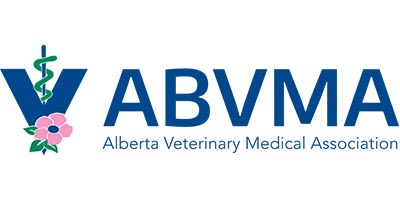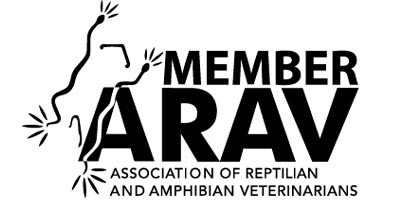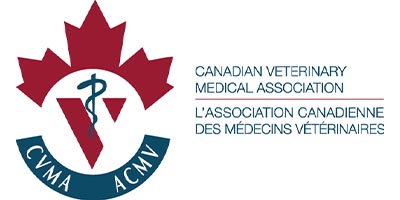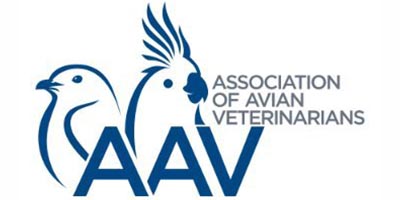Guinea pigs are native to South America. Their docile nature, size and characteristic range of vocalizations make them ideal pets. Guinea pigs are creatures of routine and establish their habits early. The American Cavy Breeders Association recognizes 13 breeds of Guinea Pigs, which come in a variety of colours and hair types.
DIET: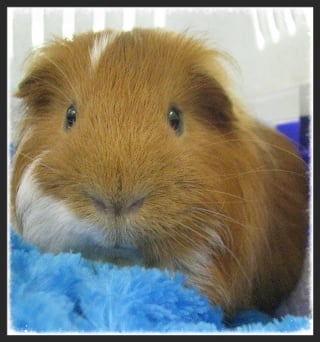
Guinea pigs are herbivores with teeth that grow their entire life, so natural grasses provide the fibrous material necessary for wearing down the teeth and ensuring the digestive tract functions optimally. The majority of the diet should be good quality grass hays, such as timothy, orchard grass or brome hay. Alfalfa hay is legume hay and is generally too high in both calcium and protein for the average adult Guinea pig. Alfalfa hay should be fed under the advise of a veterinarian in cases where weight gain is advised or the Guinea pig is pregnant or nursing. Grass hay should be offered in unlimited amounts daily.
Pellets should be manufactured specifically for Guinea pigs and made of timothy hay rather than alfalfa. Guinea pig pellets should be as fresh as possible as the added Vitamin C rapidly diminishes with age. An adult Guinea pig should be offered ¼ cup of pellets per day, along with their hay and fresh foods.
Guinea pigs are like humans and apes; they cannot manufacture their own Vitamin C and rely on their diet to meet their body’s requirements. Without an average of 20-25 mg of Vitamin C per day, signs of scurvy will appear, a painful condition affecting the joints and membranes in the body. To prevent scurvy, ¼-½ cup of washed, shredded and packed fresh food should be offered daily. Vitamin C rich foods include tomatoes, broccoli, carrots, sweet pepper, apples, parsley, and dark leafy greens, such as kale, leaf lettuces and dandelion greens. Vitamin C added to the water degrades too rapidly to be of use, so if adding a Vitamin C supplement to the diet, a tablet or biscuit formulated for Guinea pigs is a better choice.
Foods to avoid include peas, beans, corn, nuts, breads and cereal grains. These high starch items can drastically alter the digestive tract bacteria resulting in serious disease. Guinea pigs have a sensitive digestive tract and sudden alterations or excesses can result in upset. New foods should always be introduced slowly.
WATER:
Fresh water should be offered daily. Remember to find out if your newly purchased guinea pig drinks from a water dish or a water bottle. Guinea pigs often play with their water source, so ensure that the container is washed and refilled daily.
HOUSING: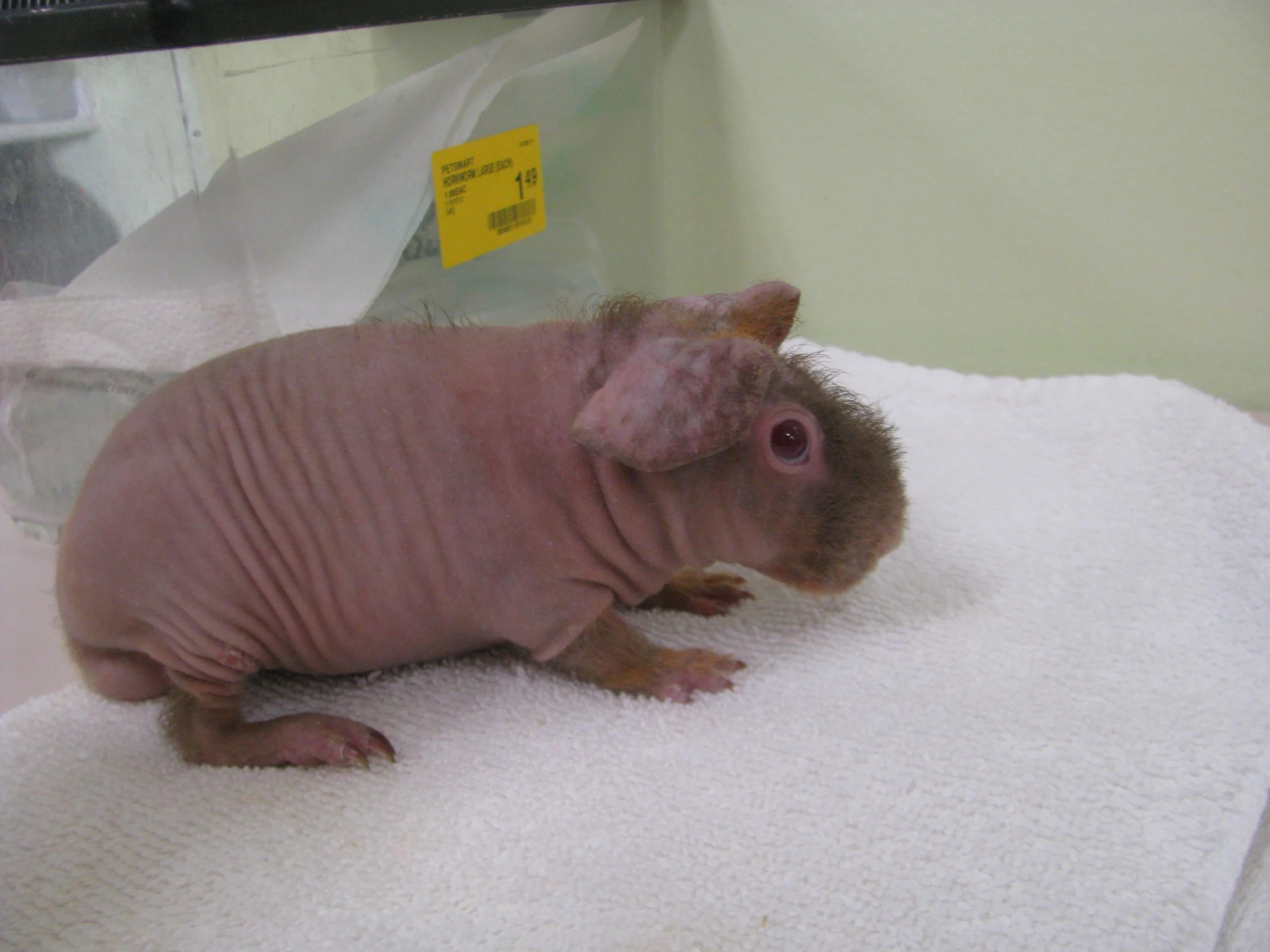
There are many ways to successfully house Guinea pigs and as long as the enclosure is safe, escape proof, easy to clean and provides enough room and environmental enrichment for the Guinea pig, the enclosure is only limited by budget and space. The best enclosures are made of wire, stainless steel or durable plastic, with no sharp edges and good ventilation. Cage flooring should be solid and to avoid feet problems, provide a soft substrate such as timothy mats, bedding or blankets. Suitable bedding must be absorbent, non-scented and dust free and includes shredded paper products, aspen wooden shavings (never pine or cedar) or blankets. Depending on the cage size, the bedding should be changed every 2 – 5 days. If using blankets, ensure that urine does not pool on the surface.
Because Guinea pigs can be shy and sensitive, cages should be placed in a relatively quiet area of the home, ensuring other pets cannot gain access to them. Guinea pigs are social by nature and can be housed together, though two young males may fight and a male and female will breed, so neutering may be necessary. Housing Guinea pigs near rabbits can expose them to Bordatella bacteria, carried and shed by the rabbits and that can cause respiratory disease in Guinea pigs. Excesses in temperature and humidity should be avoided.
Guinea pig enclosures should be designed to provide a rich and stimulating environment. Timothy hay, cardboard, plastic or wooden dwellings should be offered for privacy. Tunnels and boxes can be interesting places to hide food items to encourage foraging and hayracks can increase the pig’s activity while eating. Many guinea pigs like to climb onto the roof of their dwelling or chew it so be prepared to change the house as needed. Guinea pigs require exercise and if the cage environment is small, the pet should be taken out daily for exercise and a cuddle. Chewable toys, such as cardboard tubes, boxes, wooden sticks and items such as brown paper bags, whiskbrooms, and sea grass toys or mats enhance the guinea pig’s environment and encourage physical activity.
HANDLING:
Guinea pigs will get to know their owners by a sense of smell. Guinea pigs have a variety of vocalizations that will express all their emotions ranging from a soft purr to a shrill whistle. Guinea pigs have stocky, square little bodies that can make holding them difficult for younger children. It is recommended that young owners sit on the floor to pet and play with their Guinea pig to prevent falling injuries.
PHYSIOLOGY: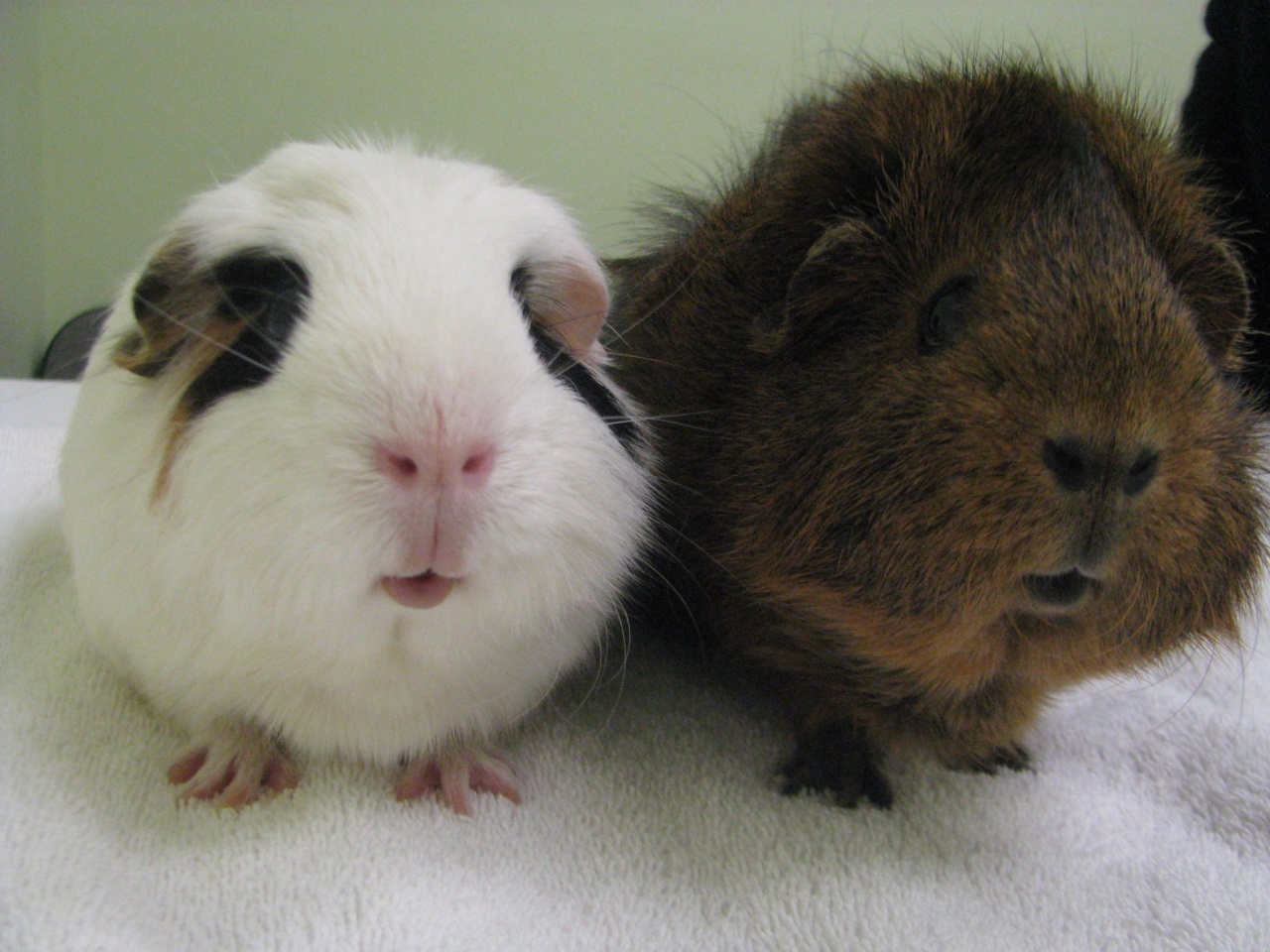
Guinea pigs live from 5 to 8 years. Guinea pigs are old enough to breed between 12 – 14 weeks of age. Females bred for the first time after six months of age may have trouble delivering their young as the pelvis fuses. Gestation is 59 – 70 days. Litter size ranges between 3 – 6 pups. Guinea pig young are born with eyes open, teeth erupted and full hair coats. Although they seem self-sufficient at birth, it is still recommended they be allowed to nurse for at least 3-4 weeks before weaning.
GROOMING:
Longhaired Guinea pigs will require brushing and occasional hair trims to prevent matts from forming. All Guinea pigs need to have nail trims done a regular basis to prevent feet problems. Bathing is not recommended, as Guinea pigs are very prone to pneumonia. Older male Guinea pigs may need their genital/anal area cleaned on a regular basis to prevent fecal impactions.
WHEN TO CALL YOUR VETERINARIAN:
Because Guinea pigs are prey and not predator species, they instinctively hide their problems. Sometimes the only clue something is wrong is a slight decrease in the amount of stool being produced, indicating a decrease in food consumption that can be a result of dental problems, infectious disease, organ changes or pain. Any guinea pig demonstrating abnormal behaviour for more than 24 hours should be seen by a veterinarian.
Dental disease:
Guinea pigs have teeth that continually grow. If your Guinea pig has difficulty eating, stops eating or has a wet chin, the teeth may have become overgrown. In some cases, the back teeth can actually grow over the tongue preventing eating altogether. Dental disease is common in older Guinea pigs or in Guinea pigs that have been dropped, resulting in front tooth damage. Dental disease should be addressed as soon as possible to prevent secondary changes from occurring.
Bladder stones:
Guinea pigs can develop bladder stones (uroliths) as a result of excess calcium or oxalates in the diet, or from urinary tract infection. Stones can be painful and the pig may cry with urination, pass blood in the urine, stop eating or moving about and in severe cases, the stone can block the urine from being passed resulting in a critical situation. Immediate veterinary attention is required.
Respiratory disease:
Guinea pigs are prone to pneumonia and should be kept in draft free areas. Often the only sign of pneumonia will be a change in the breathing pattern and a decrease in appetite.
Skin and Hair:
Guinea pigs can carry both lice and mites, specific to their species. Whereas lice can be seen with the naked eye, mites are diagnosed by microscopic examination. Both parasites will cause itchiness, but mites are far more serious, causing marked hair loss and intense itchiness, which can sometimes be so severe, the guinea pig seizures. Any pig with coat changes or that demonstrates agitation with handling should be examined for mites. Both parasites are easily treated. Guinea pigs can carry a fungus that causes ringworm. Hair loss with grey flakey skin, particularly around the face and ears can be early signs. Ringworm is a zoonotic disease that can be transmitted to people. Mature female Guinea pigs may develop ovarian cysts that are not only painful, but can cause hair loss on the body. Both male and female Guinea pigs can develop mammary gland abnormalities. Noted changes to the hair or skin warrant a veterinary visit.
It is recommended that every Guinea pig should have a routine health check with a veterinarian experienced in the care of small rodents once a year to aid in the early detection of problems and to allow a chance to update owners on the latest in care and husbandry.
THIS INFORMATION IS MEANT AS A GUIDELINE ONLY AND IN NO WAY REPLACES CONSULTATION WITH A VETERINARIAN.


